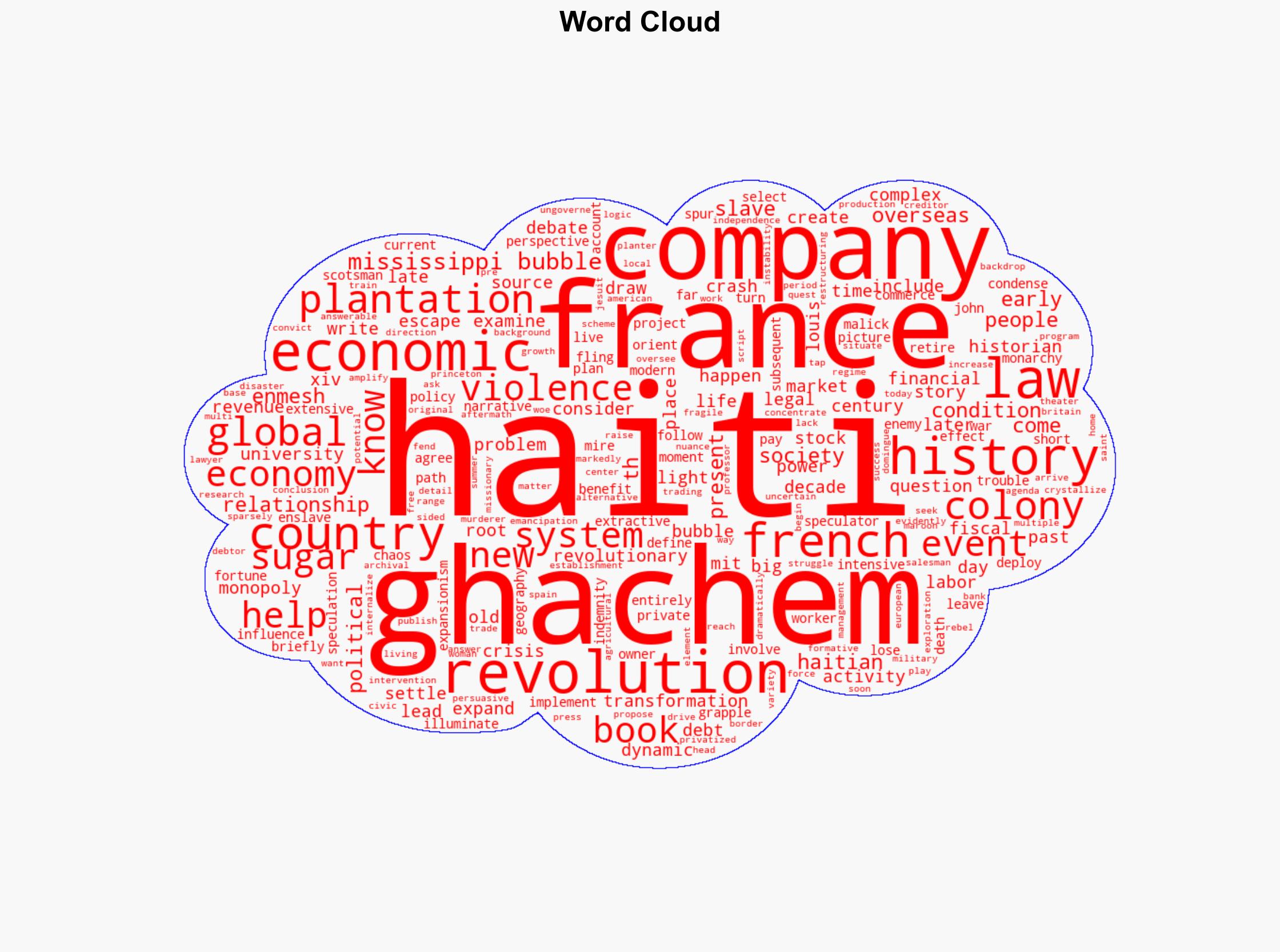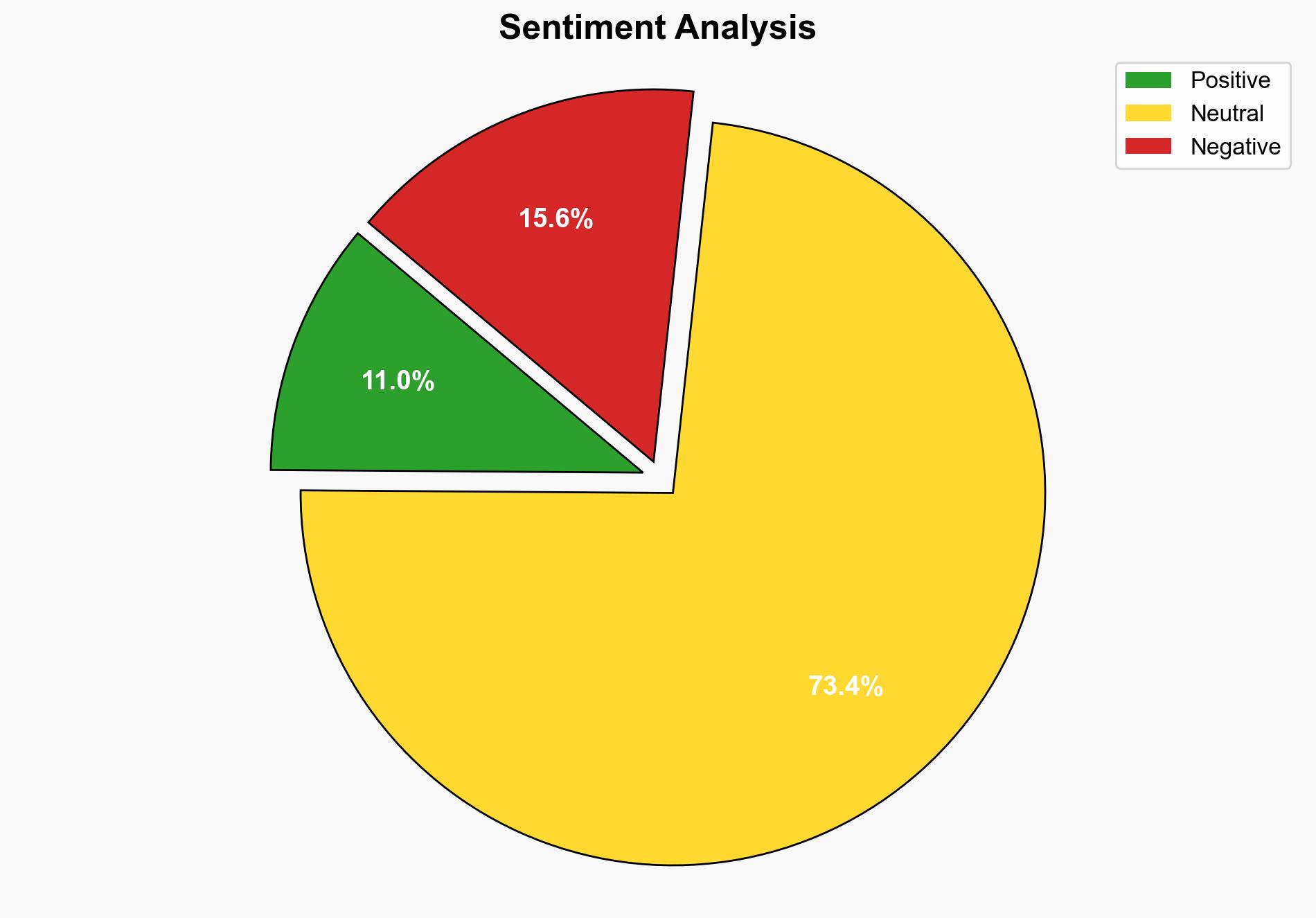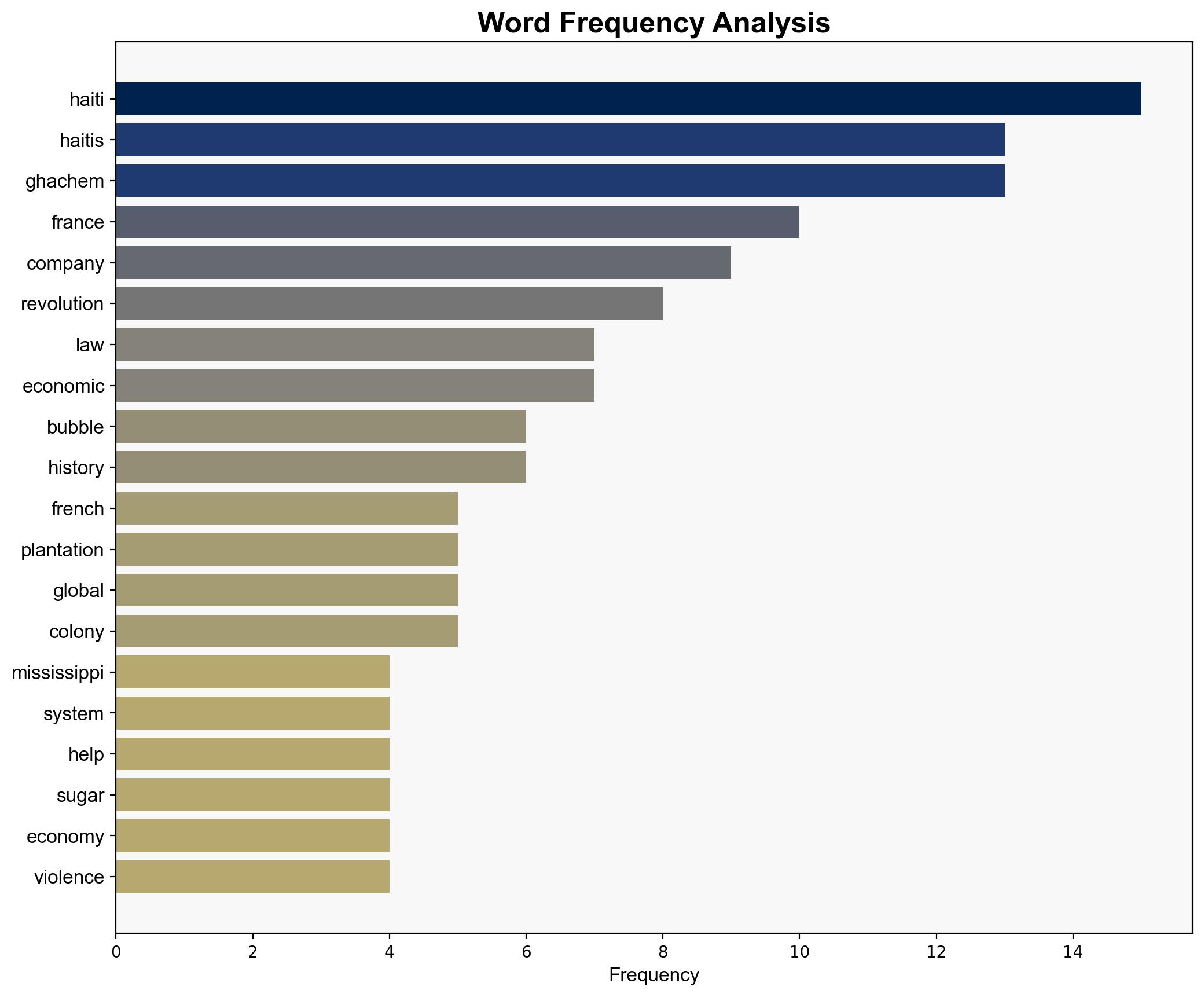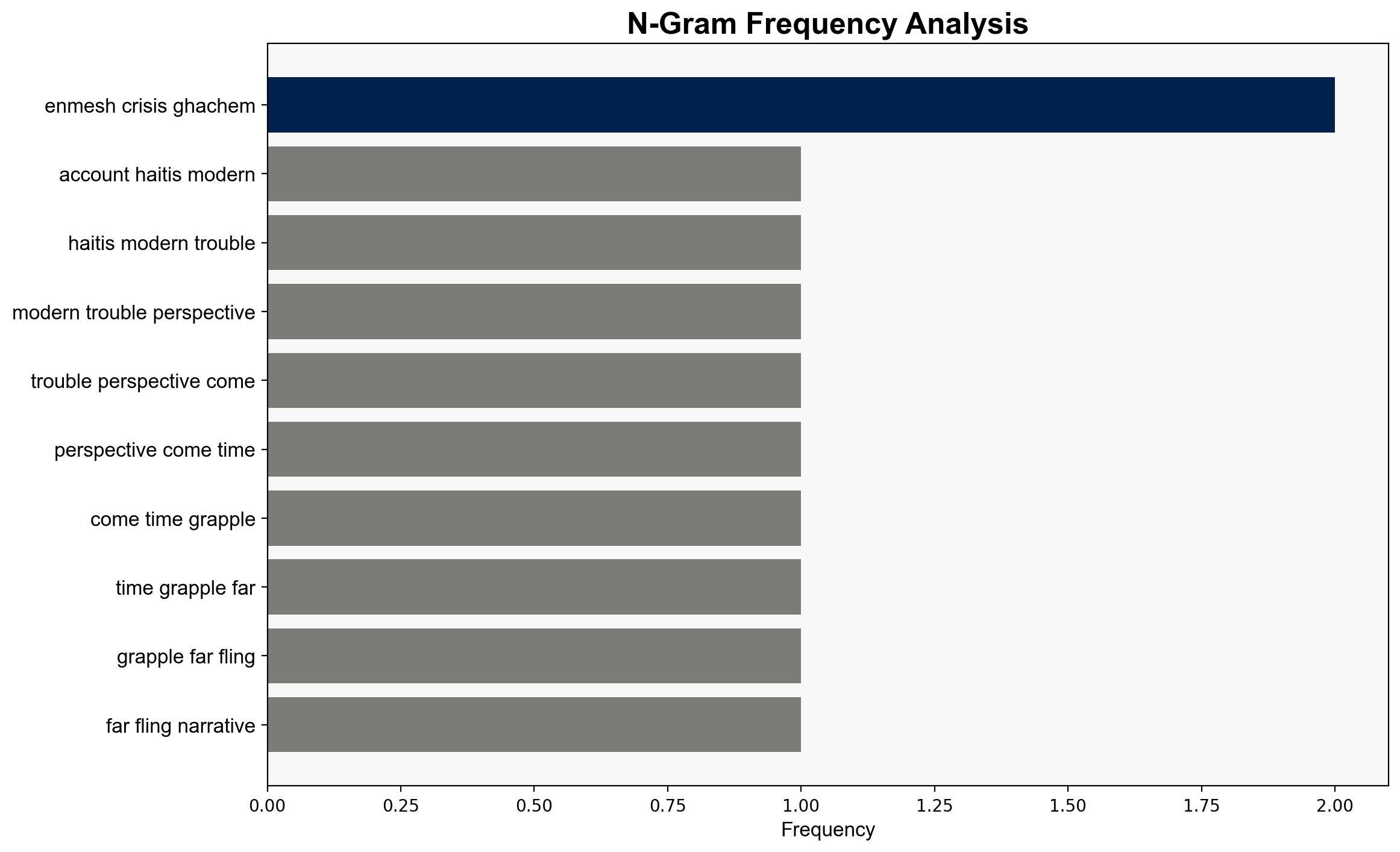The Mississippi Bubble and the complex history of Haiti – Mit.edu
Published on: 2025-08-21
Intelligence Report: The Mississippi Bubble and the Complex History of Haiti – Mit.edu
1. BLUF (Bottom Line Up Front)
The analysis suggests that the Mississippi Bubble and subsequent economic policies significantly influenced Haiti’s historical trajectory, embedding it in a cycle of debt and dependency. The hypothesis that these events laid the groundwork for Haiti’s enduring economic challenges is better supported. Confidence in this judgment is moderate due to the complexity of historical causation. Strategic recommendation includes fostering economic resilience in Haiti through diversified development strategies.
2. Competing Hypotheses
1. **Hypothesis A**: The Mississippi Bubble and John Law’s economic policies were pivotal in shaping Haiti’s economic structure, leading to its long-term economic challenges.
2. **Hypothesis B**: Haiti’s economic difficulties are primarily a result of post-independence indemnities and internal governance issues, with the Mississippi Bubble having a minimal long-term impact.
Using ACH 2.0, Hypothesis A is more supported due to the documented influence of French economic policies on Haiti’s plantation economy and debt structures. Hypothesis B, while plausible, lacks the same depth of historical linkage to the Mississippi Bubble.
3. Key Assumptions and Red Flags
– **Assumptions**:
– Hypothesis A assumes a direct causative link between French economic policies and Haiti’s economic structure.
– Hypothesis B assumes that internal factors post-independence overshadowed earlier economic influences.
– **Red Flags**:
– Potential bias in overemphasizing the Mississippi Bubble’s impact without considering other global economic trends.
– Lack of comprehensive data on the economic impact of the Mississippi Bubble on Haiti specifically.
4. Implications and Strategic Risks
The historical entanglement of Haiti in global economic systems highlights the risk of continued economic dependency and vulnerability to external shocks. The legacy of extractive economic practices could perpetuate socio-economic instability, potentially escalating into political unrest. The strategic risk includes Haiti’s susceptibility to influence from foreign economic powers and the potential for economic crises to exacerbate regional instability.
5. Recommendations and Outlook
- Encourage economic diversification in Haiti to reduce dependency on traditional sectors.
- Support initiatives aimed at debt relief and sustainable economic development.
- Best-case scenario: Haiti achieves economic stability through diversified growth.
- Worst-case scenario: Continued economic dependency leads to increased instability.
- Most likely scenario: Gradual improvement with targeted international support.
6. Key Individuals and Entities
– John Law: His economic policies and the Mississippi Bubble are central to the analysis.
– Malick Ghachem: Provides historical insights into Haiti’s economic history.
7. Thematic Tags
economic history, Haiti, Mississippi Bubble, French economic policy, global economic systems




